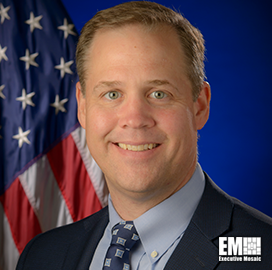NASA and the U.S. National Science Foundation (NSF) have signed a memorandum of understanding (MOU), solidifying their intent to continue a long term partnership in mutually beneficial space research activities, NASA reported on Thursday.
“We look forward to continued collaboration on areas of research here on Earth and in space – including aboard the International Space Station – as well as inspiring the next generation of STEM professionals,” said NASA administrator and 2019 Wash100 Award recipient, Jim Bridenstine.
Under the agreement, the agencies will work to advance space, Earth, biological and physical sciences to support national space policy and scientific research. The MOU includes a range of research and activities, spanning across science, engineering and education.
Through the recent MOU, NASA and NSF will continue to advance NASA- and NSF-sponsored science programs. The agencies also will continue the NASA-NSF partnership for exoplanet research and enable integration of Earth’s ecosystem and biodiversity observations from ground-based, aerial and space-based sensing systems.
Additionally, the agencies will continue collaboration to develop a space weather research-to-operations-to-research framework. The framework will strive to establish principles for interagency collaboration that will advance and predict Sun-Earth space weather.
NASA and NSF have previously partnered to support research activities related to astrophysics, astrochemistry, planetary science, astrobiology and heliophysics that work to further understand space weather, exoplanets, gravitational waves and the origins of life.
The agencies also have engaged in field campaigns to address fundamental Earth system science, as well as Earth system modeling, remote sensing, and ocean and climate monitoring activities. NASA and NSF have also collaborated in research aboard the International Space Station (ISS).
“NASA has been a crucial partner for decades, and this interagency collaboration will ensure we can continue and expand our cooperative efforts, including building a strong and diverse scientific workforce,” said NSF director Sethuraman Panchanathan.





